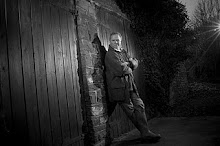As a species, we seem to be inexorably drawn to finding a nice, neat way of explaining our environment; our universe; as to why we're here at all. Almost as much as our recent increase in national debt (but obviously not quite that much) has been spent on a giant electro-magnet in Switzerland known as CERN which, when the egg-heads get it to work properly, will tell us what the universe is made of. Once and for all. In a simple, easily understandable way. Maybe.
These type of experiments (and long may they continue) suggest that it's as if we desperately need to sum up our lives and existence with a simple answer and, all too often, a single phrase. Life's full of them: a stitch in time saves nine (whatever that means), one swallow doesn't make a summer and, closer to home for me, too many cooks spoil the broth. Really? Sometimes we could do with a lot more cooks and too few cooks might mean the broth doesn't get made.
Talking to a few of our chefs recently, I did a little survey by asking each one: how important is good eating to you? Their response was swift. Of course good eating's important. They spend many hard-working hours in hot kitchens ensuring that our customers leave happy. But that's not what I meant.
Over the years I've worked with many chefs who never eat what they cook professionally. The food they cooked at home, if they cooked at all, was nothing like that in their restaurants. In fact, at one stage, I came to believe that a British chef's staple diet consisted of bacon sandwiches interspersed with the occasional kebab.
That's why I was asking them about the importance of eating because it occurs to me that there's little point in looking at the recipes I write, or of flicking through cook books, if the objective is to actually appreciate food. The enjoyment of eating and the appreciation of good food doesn't necessarily need to be accompanied by an ability to cook. It might help but there are many gourmets who can't cook - and that includes many restaurant critics. One doesn't need to be able to act well to appreciate good theatre. But one really does have to understand eating to cook well.
Understanding that eating is an enjoyment in itself is what's necessary. And opening the mind to what's on offer, pushing prejudices aside and appreciating what others like. Then, if you really want to cook well, you'll know what you're looking for.
I admit that I've argued for years that there's an almost criminal lack of education in our schools when it comes to cooking and I still believe that to be true. But that has to be accompanied by an understanding of how to enjoy eating the result for it really to be useful.
It's not about understanding how to cook but how to enjoy eating. Then recipes can help one understand how to cook in order to attain the level of eating one aspires to. It's about identifying the objective then sorting out the method of achieving it. Then one can become a good cook.
Wow! This is nearly as complicated as finding a universe-unifying theory. But I don't need a subterranean laboratory to identify it. It can be summed up in a simple phrase, one much loved by dictators and despots alike throughout history. When it comes to becoming a good cook it's essential that one appreciates eating. And therefore you need only five words: the end justifies the means.
Originally posted in April 2010
Subscribe to:
Post Comments (Atom)


No comments:
Post a Comment